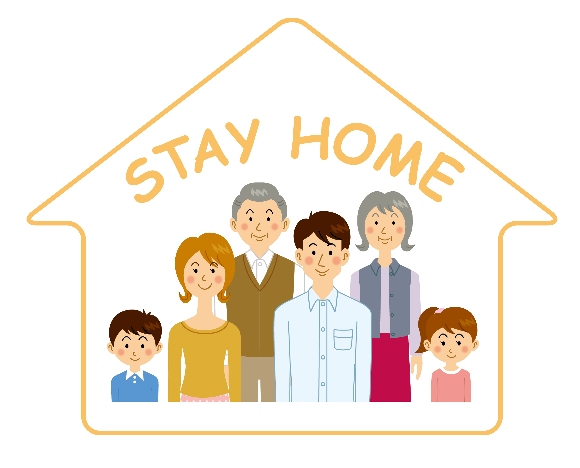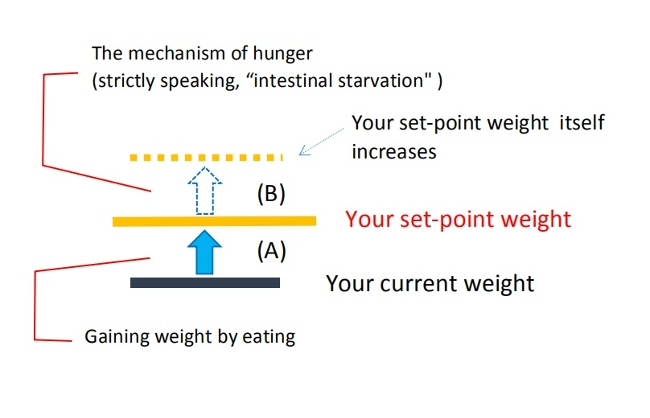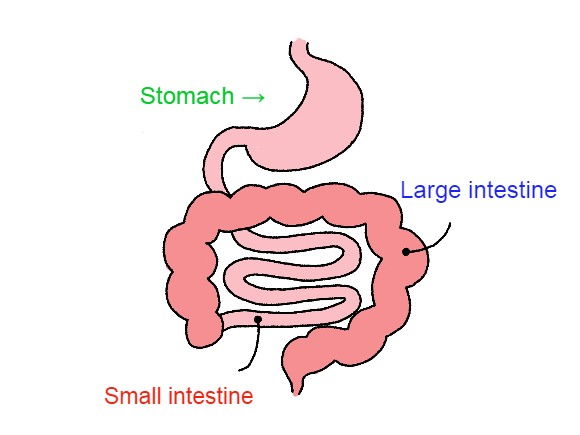Topics
10/21/2022
People Who Usually Eat Less, and Who Occasionally Splurge, Gradually Gain Weight
Contents
- People who gained weight during the Covid self-quarantine period
- A wrong strategy is to skip a meal today because you ate too much yesterday
- Daily actions taken by people who are gradually gaining weight
<The bottom line>
1. People who gained weight during the Covid self-quarantine period
According to a survey, more than fifty percent of Japanese people put on some weight during the period of staying at home by government order to prevent the spread of the coronavirus.

I saw a woman on television. She is a dance instructor and gained more than ten kilograms during this period.
Also, a friend of mine who owns a Japanese restaurant and works as a chef, gained almost five kilograms. He usually skipped breakfast and did not eat much dinner after his restaurant closed (around 11:00 p.m.), but during this period of self-quarantine, he stayed at home watching television and eating three times a day.
I think two classic examples of "eating a lot or stopping exercising makes you fat" fit here.
Normally, these people were under the strain of their jobs, moving all day long, eating in moderation, and paying attention to caloric intake. If that tension is gone and they simply exercise less and eat more, they will naturally gain weight.

However, this is the same pattern as rebounding, which means their weight go back to their set-point weight ([A] in Figure).
2. A wrong strategy is to skip a meal today because you ate too much yesterday
Sometimes I hear people say, "I ate too much at the all-you-can-eat buffet yesterday and gained three kilograms in one night.” They may have simply gained body fat or the weight of the food in their gut may also be a factor.
But It is a big mistake to say, "Okay, let's skip today's lunch."

Food ingested yesterday has already passed through the gastrointestinal tract and may be excreted in the form of a stool, but if you eat less today and put up with hunger over many hours, intestinal starvation may be induced, and your set-point weight may increase slightly.
So, it does not make sense to offset the extra calories you ate yesterday by eating less today.
3. Daily actions taken by people who are gradually gaining weight
With the recent gourmet food boom, many delicious foods are introduced on television and social media, while many people are worried about gaining weight and are trying to eat less.

Many of them usually restrain themselves as much as possible on the foods they want to eat, cutting back on calorie-dense foods such as sweets or fried foods.
Then, they splurge once in a while and eat their favorite foods as a reward.
In the end, they regret the weight they have temporarily gained and say, "Let's start dieting again tomorrow," and engage in a calorie-restricted diet.
I have no doubt whatsoever these diets are rarely successful. Rather, they tend to gain weight little by little. Eating on and off, or eating unevenly, is the first step toward becoming overweight.
If you skip meals or eat light meals (e.g. hamburgers and coffee) to reduce calorie and carbohydrate intake, you will deal with hunger for a longer period of time.
Even if you lose a little weight temporarily, the lack of fats/oils, dairy products, and fibrous vegetables can lead to intestinal starvation and an increase in your set-point weight over the long haul.
Unknowingly, your set-point weight may go up, and one day, when you eat like you used to, you may find that you have reached your highest weight ever. And it will be harder to lose weight than before.

The gastrointestinal tract starts by eating breakfast, and the food we eat is delivered to the rectum in around twenty hours or more (it differs from person to person).
Therefore, it is a mistake to say, "I ate too much yesterday, so I will skip lunch today," or "I ate a lot of fibrous vegetables yesterday, so I don't need them today.”
It is also a mistake to say, "I will eat enough vegetables and nutritious foods at dinner, so I will go with a light breakfast and lunch," because a combination of easily digested food can result in intestinal starvation in as little as six to eight hours.
The first step in becoming leaner is to eat three well-balanced meals religiously every day.
Even if you want to reduce total caloric and carbohydrate intake, be sure to consume a variety of foods from a diverse group of foods.
The bottom line
(1) Some people claim to have gained a few kilos during the Covid self-quarantine period, but I believe most cases can be explained by a return to one’s set-point weight as well as a rebound effect after dieting.
(2) The idea of adjusting for yesterday's excess calories by eating fewer calories today is a mistake when it comes to maintaining a stable weight in the long run.
(3) People who usually eat less and hold back on the foods they want to eat for dieting, and occasionally splurge on treats, are more likely to gain weight over the long haul.
Irregular eating, where a person eats on and off, can cause intestinal starvation when dealing with hunger over many hours, unknowingly increasing their set-point weight.
(4) Since the gastrointestinal tract basically begins with breakfast and the food we eat reaches the rectum in around twenty hours or so (it differs from person to person), it is important to eat three well-balanced meals every day if you do not want to gain weight.

